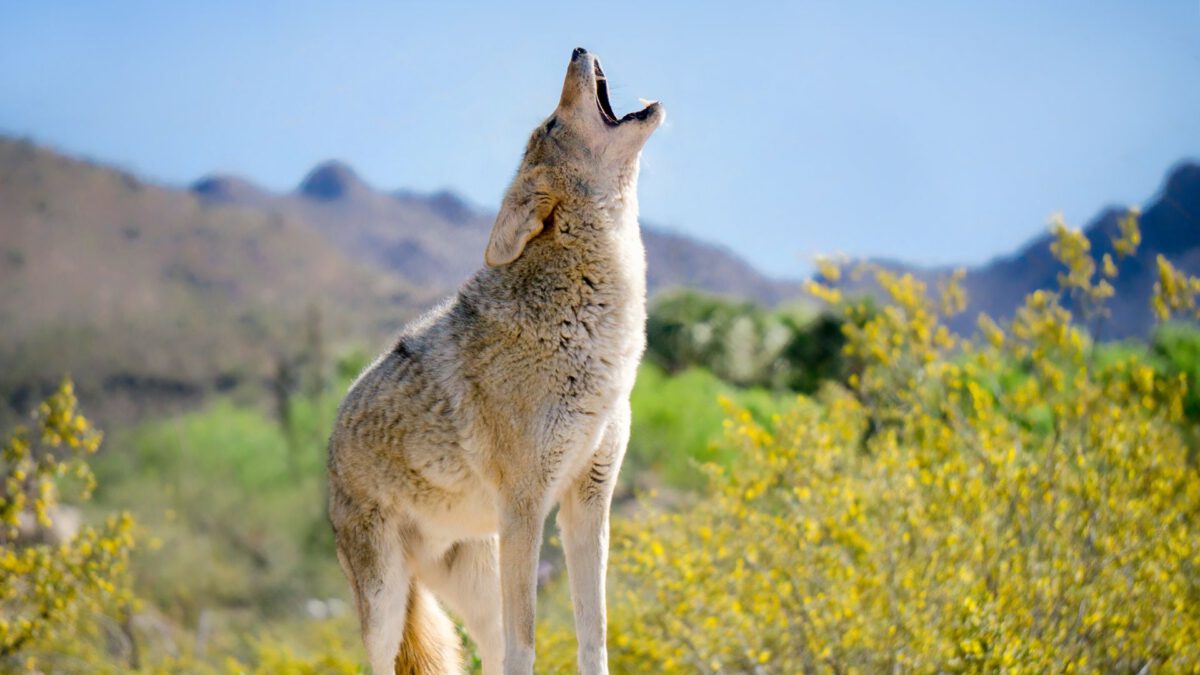When it comes to the safety of our beloved feline friends, it’s essential to be aware of potential threats lurking in the wild. One question that often arises is, “Do coyotes eat cats?” While it’s not a common occurrence, it’s crucial to understand the risks and take necessary precautions to keep our outdoor cats safe.
Understanding the Potential Threat
Coyotes are adaptable predators that have expanded their territories into urban and suburban areas. While encounters with domestic cats are more likely in rural areas, it’s still essential to recognize the potential danger that coyotes pose.
Coyotes are skilled hunters and may perceive outdoor cats as prey. As human activities encroach upon natural habitats, these wild animals are attracted to residential areas. Therefore, it’s crucial to take proactive measures to protect your cat from potential encounters.
The Rarity of Coyote-Cat Interactions
While it may be concerning to imagine coyotes catching and eating cats, such incidents are relatively uncommon. Factors such as the geographical location, the availability of other food sources, and the behavior of coyotes play a significant role in determining whether they will pursue a cat as prey.
Coyotes are opportunistic predators that primarily feed on smaller mammals like rabbits and rodents. Unless a cat crosses paths with a hungry coyote, it’s unlikely to be actively targeted. Instances of coyotes consuming feral or tame cats are more common in suburban or urban areas where human-altered landscapes have brought them into close proximity with cats.
Areas of Potential Encounter
Coyotes are known to adapt well to human-altered landscapes, making parks, open spaces, and even residential neighborhoods their hunting grounds. If a cat lives outdoors, even part-time, the likelihood of an encounter increases. Additionally, neighborhoods with abundant food sources, such as unsecured garbage or pet food left outside, can attract coyotes.
It’s crucial to be vigilant in areas where civilization has encroached upon natural habitats. By understanding their preferred territories, you can take preemptive measures to keep your cat safe.
Can Cats Defend Themselves?
Cats possess natural instincts for hunting and protecting themselves. While they may have some level of awareness regarding potential predators like coyotes, relying solely on their instincts is not enough. A cat’s cautiousness can vary, and it may not guarantee their safety.
Cats have the ability to fight back and use their claws to defend themselves while attempting to escape. However, due to the size and predatory nature of coyotes, cats may struggle to effectively defend themselves. It’s important to keep in mind that not all cats are capable of reaching high speeds, and older or overweight cats may be slower.
The Sense of Smell
Coyotes have an exceptional sense of smell that allows them to detect scents from considerable distances. It’s estimated that a coyote can smell a cat up to a mile away. This heightened sense of smell enables coyotes to locate potential prey, including cats, even if they’re not immediately visible.
Protecting Your Cat from Coyotes
To minimize the chances of cat-coyote encounters, it’s essential to supervise your cat when they are outdoors and keep them indoors during peak coyote activity times. If you live in an area with known coyote activity, avoid letting your cat roam freely.
Taking additional precautions such as putting up a fence, securing outdoor food sources, and creating a secure outdoor enclosure or “catio” can significantly reduce the risks your cat might face from coyotes. It’s also advisable to keep your property well-lit at night.
In case of a suspected coyote attack, it’s important to contact your vet for the best treatment plan.
Frequently Asked Questions
Q: How far away can a coyote smell a cat?
A: Coyotes have an extraordinary sense of smell and can detect the scent of a cat up to a mile away.
Q: Can a cat defend itself against a coyote?
A: While cats can use their claws to fight back, they may struggle to effectively defend themselves against the size and predatory nature of coyotes.
Q: How do I protect my cat from coyotes?
A: To protect your cat from coyotes, supervise them outdoors, keep them indoors during peak coyote activity times, and secure your property with fences or enclosures. Additionally, ensure that outdoor food sources are secure and keep your property well-lit at night.
Conclusion
Coyotes can pose a potential threat to the safety of our beloved cats, especially when they roam in areas where civilization has encroached upon natural habitats. By understanding the behavior of coyotes and taking proactive measures to protect our cats, we can minimize the risks they face.
For more information and tips on how to keep your pets safe, visit Pawsoha. Share your experiences and join the conversation on our HypePets Discord server. Let’s work together to ensure the well-being of our furry friends.
